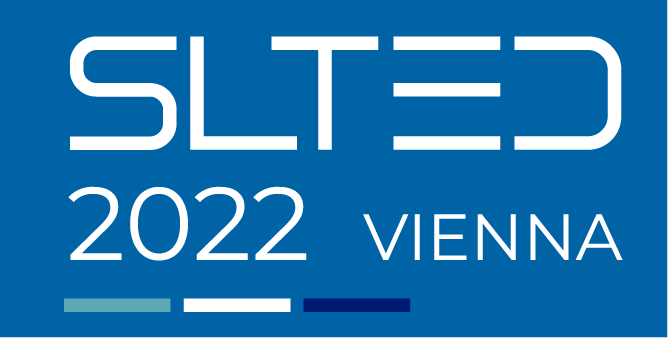Lingua Franca Communication and Language Teacher Education: The Challenge of Change
Organisers: Barbara Seidlhofer (University of Vienna, Austria) & Kurt Kohn (University of Tübingen, Germany)
Invited Speakers: Iris Schaller-Schwaner (University of Fribourg, Switzerland), Andy Kirkpatrick, (Griffith University, Australia), Beate Clayson-Knollmayr (University of Vienna, Austria), Eva Knechtelsdorfer (University of Vienna & KPH Vienna/Krems, Austria), Sandra Radinger (University of Vienna, Austria), Stefania Kordia (Hellenic Open University, Greece)
Invited respondents: Andrew Blair (University of Sussex, UK), Lucilla Lopriore (University of Roma Tre, Italy), Veronika Quinn Novotná & Jiřina Dunková (University of West Bohemia, Czech Republic), Eva Illes (Eötvös Loránd University, Budapest), Natasha Tsantila (The American College of Greece, Athens)
One consequence of globalisation of particular relevance to the profession of language teaching is that the volume of lingua franca communication using the resources of (particularly) English has vastly increased over recent decades. The development has been further reinforced and enhanced by the availability of online communication and collaboration technologies and the rise and expansion of social media. From leisure to work to education, English as a lingua franca has become pervasive in international communication. The symposium explores the pedagogical implications of this state of affairs with a focus on English language teaching (ELT) and English language teacher education. Complementary and closely intertwined issues will be explored in four short presentations and in-depth discussions:
- "Teaching people or a language?" (Iris Schaller-Schwaner, Andy Kirkpatrick)
Research on New Englishes in non-anglophone countries and on English as a lingua franca in non-native settings coexists with resilient beliefs in L1-anglophones as ideal instructors and monolingual Englishes as ideal targets in ELT. This talk illustrates our approach to teaching English for ELF users (in academic settings) and about ELF to students becoming teachers of English to speakers of largely same (and other) language(s). While requiring abstract idealisations and complex handling of language repertoires, its aims are realistic. We focus on the notion of teaching people (to become multilingual users of English) rather than teaching the English language per se. - "Teaching outside the box. An example of an ELF CPD course in Austria" (Beate Clayson-Knollmayr, Eva Knechtelsdorfer, Sandra Radinger)
Our four-session CPD course invited in-service teachers to share their experiences with regard to questions like, What is the aim of language teaching? and, Whose English are we teaching? In different reflective exercises and engagement with ELF research, participants critically evaluated their own practice, current teaching policy in ELT, and what we had to offer as ELF researchers. The learnings from this course corroborate the importance of adapting ELF-informed CPD courses to local contexts. - "Reflective change in ELF-aware teacher education: Insights from the ELF-GATE and the ENRICH Course" (Stefania Kordia)
This presentation focuses on the lessons learned from two teacher education courses, namely the ELF-GATE and the ENRICH Course, which aimed at empowering in-service teachers of English to integrate ELF in their classrooms. Emphasis is placed on the ways in which reflection on ELF-related issues in relation to one’s experience as a user, teacher and prior learner of English was promoted in each of these courses. Indicative data from teachers’ reflection and lesson plans they designed for their classrooms are also presented, illustrating the extent to which change in their normative mindsets and teaching practices had been brought about. - “MY English – the art of ELF communication and how to get there” (Kurt Kohn)
Against the backdrop of a social constructivist MY English perspective on communication and language learning, this presentation focuses on helping ELT students develop their competence for intercultural ELF communication. Special attention will be given to virtual exchanges in which ELT students of different linguacultural backgrounds communicate with each other using their target language as a pedagogical lingua franca. Case study explorations in secondary school contexts provide insights regarding communicative authentication, the emergence of speaker-learner emancipation, and the need for pedagogical mentoring.
All contributions and discussions are set against the backdrop of ELT and the discrepancy between its traditional focus on fairly stable, conventional encodings of a communally shared (‘native’) variety and the changing sociolinguistic and communicative realities of English around the world. The overall aim is to explore possibilities of a pedagogical complementarity between ELT and ELF communication.
The symposium is designed to combine the presentation of some ‘best practice’ examples of teacher education courses which focus on pedagogy for (E)LF communication with discussions of these in a constructively critical fashion, initiated by invited comments. The main purpose of the symposium is to engage in a real dialogue of various perspectives.
